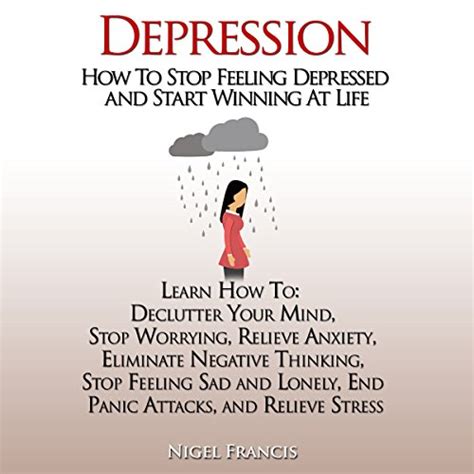How To Not Be Depressed: Practical Strategies for Cultivating Happiness and Well-being
Feeling down? Experiencing persistent sadness or loss of interest? While this article offers helpful strategies, it's crucial to remember that depression is a serious condition requiring professional help. This information is not a substitute for professional medical advice. If you suspect you're struggling with depression, please reach out to a doctor or mental health professional.
Understanding the Roots of Depression
Before diving into solutions, it's helpful to understand that depression isn't simply "sadness." It's a complex condition with various contributing factors, including:
- Biological Factors: Genetics, brain chemistry imbalances, and hormonal changes can play significant roles.
- Environmental Factors: Stressful life events, trauma, and ongoing challenges can trigger or worsen depressive symptoms.
- Psychological Factors: Negative thought patterns, low self-esteem, and learned helplessness can contribute to depression.
Practical Strategies for Improving Your Mental Well-being
While professional treatment is essential for many, incorporating these strategies can significantly contribute to improved mood and mental well-being:
1. Prioritize Physical Health
The mind-body connection is undeniable. Neglecting physical health often exacerbates mental health challenges.
- Regular Exercise: Aim for at least 30 minutes of moderate-intensity exercise most days of the week. Even short bursts of activity can make a difference.
- Nourishing Diet: Focus on whole, unprocessed foods. Limit sugar, processed foods, and excessive caffeine.
- Sufficient Sleep: Aim for 7-9 hours of quality sleep per night. Establish a regular sleep schedule and create a relaxing bedtime routine.
2. Cultivate Positive Relationships
Strong social connections are vital for mental well-being.
- Connect with Loved Ones: Spend quality time with supportive friends and family. Share your feelings and seek their support.
- Join a Community: Find groups or activities that align with your interests. This can provide a sense of belonging and purpose.
- Seek Professional Support: Therapists, counselors, and support groups offer safe spaces to process emotions and develop coping mechanisms.
3. Challenge Negative Thought Patterns
Negative self-talk and cognitive distortions can significantly impact mood.
- Identify Negative Thoughts: Pay attention to your inner dialogue. When you notice negative thoughts, challenge their validity.
- Practice Self-Compassion: Treat yourself with the same kindness and understanding you would offer a friend.
- Cognitive Behavioral Therapy (CBT): CBT is a highly effective therapy that helps identify and change negative thought patterns and behaviors.
4. Engage in Activities You Enjoy
Finding joy and purpose is crucial for combating depression.
- Hobbies and Interests: Dedicate time to activities that bring you pleasure and a sense of accomplishment.
- Creative Expression: Explore creative outlets like writing, painting, music, or dance.
- Mindfulness and Meditation: Practice mindfulness techniques to increase self-awareness and reduce stress.
5. Seek Professional Help
Don't hesitate to reach out for professional support if you're struggling.
- Doctors: Your primary care physician can provide an initial assessment and refer you to a mental health professional.
- Therapists and Counselors: Therapists can provide individual or group therapy to address underlying issues and develop coping strategies.
- Psychiatrists: Psychiatrists can diagnose and treat mental health conditions, often prescribing medication when necessary.
Remember: You Are Not Alone
Many people experience periods of sadness or low mood. Seeking help is a sign of strength, not weakness. By taking proactive steps to improve your physical and mental health, and seeking professional support when needed, you can build resilience and cultivate a happier, healthier life. You deserve to feel better.
